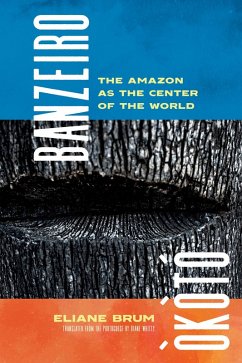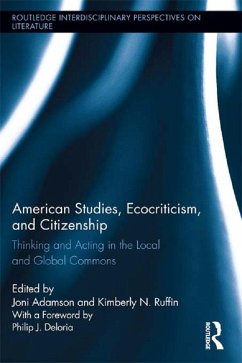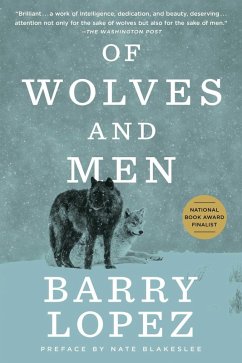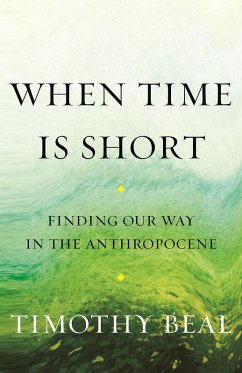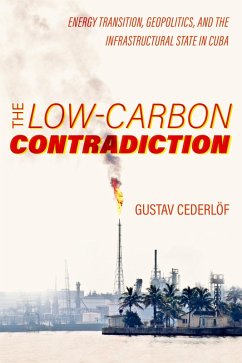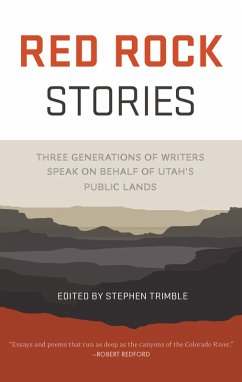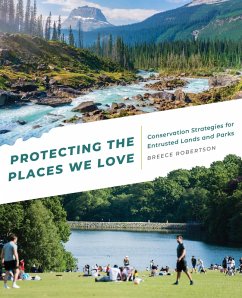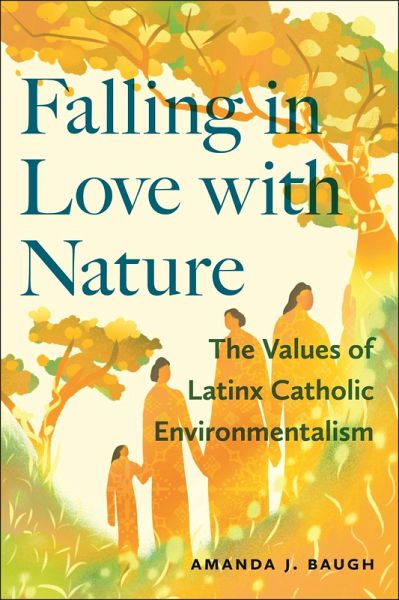
Falling in Love with Nature (eBook, ePUB)
The Values of Latinx Catholic Environmentalism
Versandkostenfrei!
Sofort per Download lieferbar
22,95 €
inkl. MwSt.
Weitere Ausgaben:

PAYBACK Punkte
11 °P sammeln!
Winner, 2025 Catholic Media Association Book Awards: Inclusion in the ChurchExplores the contours of Latinx Catholic environmentalismHome-based conservationist measures such as cultivating backyard gardens, avoiding consumerism, and limiting waste are widespread among Spanish-speaking Catholics across the United States. Yet these home-based conservationist practices are seldom recognized as "environmental" because they are enacted by working-class immigrant communities and do not conform to the expectations of mainstream environmentalism.In Falling in Love with Nature, Amanda J. Baugh tells th...
Winner, 2025 Catholic Media Association Book Awards: Inclusion in the Church
Explores the contours of Latinx Catholic environmentalism
Home-based conservationist measures such as cultivating backyard gardens, avoiding consumerism, and limiting waste are widespread among Spanish-speaking Catholics across the United States. Yet these home-based conservationist practices are seldom recognized as "environmental" because they are enacted by working-class immigrant communities and do not conform to the expectations of mainstream environmentalism.
In Falling in Love with Nature, Amanda J. Baugh tells the story of American environmentalism through a focus on Spanish-speaking Catholics, shedding light on environmental actors who have been hidden in plain sight. While dominant narratives about environmental activism include minorities, primarily in the realm of environmental racism and injustice, Baugh demonstrates that minority communities are not merely victims of environmental problems. They can be active agents who express love for nature based on inherited family traditions and close relationships with the land. Baugh shows that Spanish-speaking Catholics have values that have been overlooked in global discourses, grassroots movements, and the highest echelons of the US Catholic Church. By drawing attention to the environmental knowledge that is already abundant within Spanish-speaking Catholic communities, Falling in Love with Nature challenges readers to rethink their assumptions about who can be an environmental leader and what counts as environmentalism.
Explores the contours of Latinx Catholic environmentalism
Home-based conservationist measures such as cultivating backyard gardens, avoiding consumerism, and limiting waste are widespread among Spanish-speaking Catholics across the United States. Yet these home-based conservationist practices are seldom recognized as "environmental" because they are enacted by working-class immigrant communities and do not conform to the expectations of mainstream environmentalism.
In Falling in Love with Nature, Amanda J. Baugh tells the story of American environmentalism through a focus on Spanish-speaking Catholics, shedding light on environmental actors who have been hidden in plain sight. While dominant narratives about environmental activism include minorities, primarily in the realm of environmental racism and injustice, Baugh demonstrates that minority communities are not merely victims of environmental problems. They can be active agents who express love for nature based on inherited family traditions and close relationships with the land. Baugh shows that Spanish-speaking Catholics have values that have been overlooked in global discourses, grassroots movements, and the highest echelons of the US Catholic Church. By drawing attention to the environmental knowledge that is already abundant within Spanish-speaking Catholic communities, Falling in Love with Nature challenges readers to rethink their assumptions about who can be an environmental leader and what counts as environmentalism.
Dieser Download kann aus rechtlichen Gründen nur mit Rechnungsadresse in A, D ausgeliefert werden.




